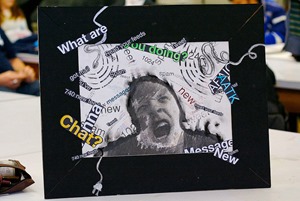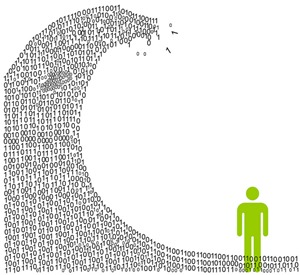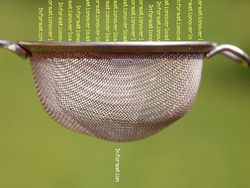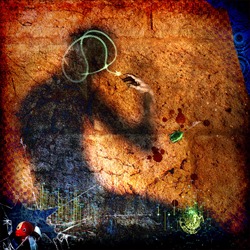We are the new Editors and Curators of the Big Wild Web
The waiting longue in my gym is adorned with stacks of newest magazines; not the trashy type but international like Ellie, Cosmopolitan, Bazaar. The longue is often occupied by sisters panting after their workouts while fixing their eyes on their smartphones, paying little attention to the beckoning of the glossy magazines.
If newspaper and television were the windows to the outside world, nowadays most people, especially millennial - like the sisters in my gym, you, and I - peek at the universe through our own piece of the internet. Technology and social platforms have ushered in this global, cultural change.
If the discovery of information and knowledge is fundamental for development, how helpful is this change?
I know friend, who, out of anguish for the soul-sucking hours wasted on Facebook, disabled his account for good. I also know many others who resent social media. Information overload, information inaccuracy, waste of time, propagandas, bombardment of hot-and-stupid stuffs, undermined human connection, confusion over big data and privacy, click baits et al.
What we often miss out is that they are not like weather that rains on us. We can do something about them – whether lessen them or avoid their future explosions.
Now I don’t have an omniscient anecdote to such formidable issue. However, I do think that are 2 things young people should understand in order to be a part of the solution.

We are the new editors
Content used to be controlled largely by the authorities and the qualified: rulers, government, writers, journalists, et al. Now content are created by average users, commoners like you and I: a YouTube video, a blog post, a status update, an album. As soon as you have access to an internet connection wired to a typing device, you can start publishing through various mediums: blog, website, forum; most popular is - of course - social media. In short, each of us is the editor of our own printing press.
There are algorithms on the web that decide what is trendy and what is hot. Because online medias make money on clicks, trendy and hot stuff will be pushed to more people to get more clicks. However, we know too well that “hot & trendy” doesn’t always mean “good & useful”; it’s often means opposite. Thus, the web constantly is filled with garbage.

Everything we blog, everything we Tweet, and everything we click is a public act of making media. We are the new editors. We decide what gets attention based on what we give our attention to. That's how the media works now. There's all these hidden algorithms that decide what you see more of and what we all see more of based on what you click on, and that in turn shapes our whole culture. – Sally Kohn, Don't like click bait? Don't click
So by clicking on a website, liking a page, or sharing an article, you are saying: “I want more of this, for me, and for everyone!” Say you know that celebrity gossips are brainless; if you want to drag them down so that useful news can bubble up the surface, don’t allow your gossipy impulse to click on it.
We are the editors of the internet era, whether we like it or not. Unfortunately, we unaware of the power in our hand. Worst, we are unconsciously exerting this power everyday.

We are the new curators
While our parents’ generation struggled against the scarcity of information, our generation is struggling against the onslaught of information. Bewildered the giant labyrinth of the web, we turn to our homey device and subconsciously seek assistance from people we know.
It’s incredible how people within a tribe, a network, relies on each other to funnel, filter, and discover information. When was the last time you clicked on an article because you saw someone in your friend list shared it?
In the age of information overload, there is a great need for good curator - someone that selects and shares information that she consider valuable. Not only does she collect, but she also connects them, makes sense of them, breathes life to them, and gives birth to new meanings. Indeed, the hallmark of her collection is her definition of “valuable.” And her work benefits whoever shares the same definition. Curators can help us navigate and discover what is truly interesting, meaningful, and important to us.

My attempt
I don’t have a blueprint for the editor and curator roles of our generation. However, I am intentional and responsible in how I use my power.
1. I have a clear definition of what “valuable” means. This is the most important thing. People screw around the web and waste their time on nonsense stuff because they don’t have a definition of what is valuable. “Valuable” materials for me means materials that grow understanding, change perspectives, spark actions; that inspire young people to live more courageously and to raise themselves to their highest potentials.
2. I look for materials that meet my standard. If I can, I digest them, connect them with other materials or my own experiences, make sense of them, and produce new contents.
3. I don’t keep what’s valuable in my vacuum. I share them generously: on my blog, social media, et al.
Better access to information should lead to better understanding of the world. Yet, our generation, riding on the highways that were built for us, is utterly confused. By becoming better editors and curators, we can help other young people in our network get out of this confusion.
Looking at the centuries that passed before us, the century that we’re living in and the centuries yet to come, I dare say that editorial and curatorial responsibilities are becoming increasingly significant. And I dare say that young people’s ability to filter, make sense, transcend, and mobilize the human wisdom of the network for good purposes is the key and will remain the key to change our future.
One of my reader wrote to me that she felt so blessed every time she read my blog, she thought of it as “a breeze in a humid crowd of aggressive and shocking news”. This made the editor and the curator in me so happy. In a humid crow of aggressive and shocking news, how does the wind feel like in your channel?

If you’re still curious about better ways to use social media, read on:





